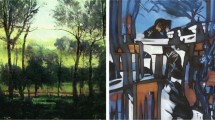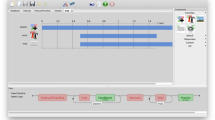Abstract
The purpose of this paper is to explain the philosophical and methodological basis of the Singer/Churchman/Ackoff School of Thought (experimentalism). The key features of experimentalism relate to its philosophy, methodology, and imagery. The paper traces and explains the development of experimentalist philosophy from a philosophy of science to a philosophy of life. The basis of this philosophy is the pursuit of ideals. Next the experimentalist methodology is discussed. This is teleological, deriving its justification from the pursuit of the scientific ideal of truth. The paper shows how the methodology changed from optimizing, problem solving to interactive planning. Then experimentalist imagery is discussed in depth. This consists of a formal, rigorous, conceptual framework that provides a conceptual link among the mechanical, probabilistic, and functional images of nature. The authors conclude by discussing how experimentalism could be further developed.
Similar content being viewed by others
References
Ackoff, R. L. (1953)The Design of Social Research, University of Chicago Press, Chicago.
Ackoff, R. L. (1962a) Some unsolved problems in problem solving.Operat. Res. Q. 13, 1–11.
Ackoff, R. L. (1962b).Scientific Method: Optimizing Applied Research Decisions, John Wiley, New York.
Ackoff, R. L. (1967)Choice, Communication and Conflict, University of Pennsylvania, Philadelphia.
Ackoff, R. L. (1968b). Toward an idealized university.Manag. Sci. 15, B-121–131.
Ackoff, R. L. (1970).A Concept of Corporate Planning, John Wiley, New York.
Ackoff, R. L. (1971). Toward a system of a systems concepts.Manage. Sci. 17, 661–671.
Ackoff, R. L. (1974).Redesigning the Future, John Wiley, New York.
Ackoff, R. L. (1976a). The aging of a young profession: Operations research.Presidential Lectures 1975–1976, University of Pennsylvania, Philadelphia.
Ackoff, R. L. (1976b). Does quality of life have to be quantified?Operat. Res. Q. 27, 289–304.
Ackoff, R. L. (1977) Optimization+objectivity=opt out.Eur. J. Operat. Res. 1, 1–7.
Ackoff, R. L. (1979a). The future of operational research is past.J. Operat. Res. Soc. 30, 93–104.
Ackoff, R. L. (1979b). Resurrecting the future of operational research.J. Operat. Res. Soc. 30, 189–199.
Ackoff, R. L. (1981).Creating the Corporate Future, John Wiley, New York.
Ackoff, R. L. (1983). Beyond prediction and preparation.J. Manage. Stud. 20, 59–69.
Ackoff, R. L. (1986).Management in Small Doses, John Wiley, New York.
Ackoff, R. L. (1991).Ackoff's Fables, John Wiley, New York.
Ackoff, R. L. (1993a). CorporatePerestroika: The internal market economy.Syst. Pract. 6, 239–249.
Ackoff, R. L. (1993b). A note on the internal market economy.Syst. Pract. 6, 451–453.
Ackoff, R. L., and Sasieni, M. W. (1968a).Fundamentals of Operations Research, John Wiley, New York.
Ackoff, R. L., and Emery, F. E. (1972).On Purposeful Systems, Tavistock, London.
Ackoff, R. L., and Emshoff, J. R. (1975a). Advertising research at Anheuser-Busch, Inc. (1963–68).Sloan Manage. Rev. 16(Winter), 1–15.
Ackoff, R. L., and Emshoff, J. R. (1975b). Advertising research at Anheuser-Busch, Inc. (1968–74).Sloan Manage. Rev. 16(Spring), 1–16.
Ackoff, R. L.,et al. (1976).The SCATT Report, University of Pennsylvania Press, Philadelphia.
Britton, G. A. (1989). A methodology for using Beer's viable system model.Cybernet. Syst. 20, 249–264.
Churchman, C. W. (1948).Theory of Experimental Inference, Macmillan, New York.
Churchman, C. W. (1961).Prediction and Optimal Decision, Prentice-Hall, Englewood Cliffs, NJ.
Churchman, C. W. (1968).Challenge to Reason, McGraw-Hill, New York.
Churchman, C. W. (1971).The Design of Inquiring Systems, Basic Books, New York.
Churchman, C. W. (1979).The Systems Approach and Its Enemies, Basic Books, New York.
Churchman, C. W. (1981). An appreciation of Edgar Arthur Singer, Jr., The First Singer Lecture. S3 paper 82-07, Social Systems Sciences Department, University of Pennsylvania, Philadelphia.
Churchman, C. W., and Ackoff, R. L. (1947)Psychologistics, Mimeographed, University of Pennsylvania, Philadelphia.
Churchman, C. W., and Ackoff, R. L. (1950).Methods of Inquiry, Educational Publishers, St. Louis.
Churchman, C. W., Ackoff, R. L., and Arnoff, E. L. (1957).Introduction to Operations Research, John Wiley, New York.
Churchman, C. W., and Ratoosh, P. (eds.). (1959).Measurement: Definitions and Theories, John Wiley, New York.
Emery, F. E. (1981). The emergence of ideal-seeking systems. In Emergy, F. E. (ed.),Systems Thinking, Penguin, Harmondsworth, pp. 431–458.
Emergy, F. E., and Trist, E. L. (1973).Towards a Social Ecology, Plenum Press, New York.
Frodsham, J. D. (1990).The Crisis of the Modern World and Traditional Wisdom, IEAP Public Lecture Series No. 14, Institute of East Asian Philosophies, Singapore.
Geranmayeh, A., and Gharajedaghi, J. (1986). A note on organizational design. S3 paper 86-04, Social Systems Sciences Department, University of Pennsylvania, Philadelphia.
Huxley, A. (1959).The Perennial Philosophy, Collins, London.
Jordan, N. (1968).Themes in Speculative Psychology, Tavistock, London.
Koestler, A. (1965).The Yogi and the Commissar, Danube ed., Hutchinson, London.
Kohn, A. (1986).No Contest, Houghton Mifflin, Boston.
Mumford, L. (1971).The Pentagon of Power; The Myth of the Machine, Seeker and Warburg, London.
Nasr, S. H. (1968).The Encounter of Man and Nature, George Allen and Unwin, London.
Nasr, S. H. (1981).Knowledge and the Sacred, Edinburgh University Press, Edinburgh.
Ozbekhan, H. (1977). The future of Paris: A systems study in strategic urban planning.Phil. Trans. R. Soc. Lond. A287, 523–544.
Pigors, P. (1935).Leadership or Domination, Harrap, London.
Singer, E. A., Jr. (1924).Mind as Behavior, R. G. Adams, Columbus, OH.
Singer, E. A., Jr. (1948).In Search of a Way of Life, Columbia University Press, New York.
Singer, E. A., Jr. (1959).Experience and Reflection, University of Pennsylvania Press, Philadelphia.
Sommerhoff, G. (1950).Analytical Biology, Oxford University Press, London.
Author information
Authors and Affiliations
Rights and permissions
About this article
Cite this article
Britton, G.A., McCallion, H. An overview of the Singer/Churchman/Ackoff School Of Thought. Systems Practice 7, 487–521 (1994). https://doi.org/10.1007/BF02173378
Received:
Revised:
Issue Date:
DOI: https://doi.org/10.1007/BF02173378




